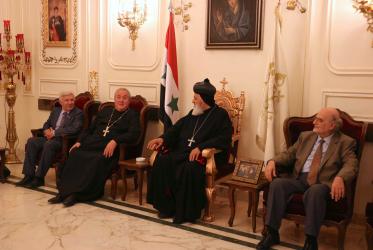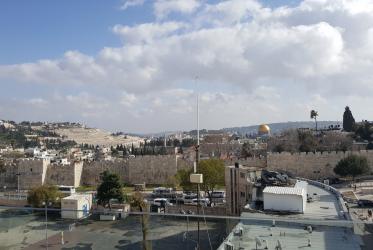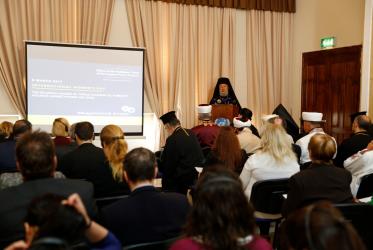Displaying 1 - 20 of 35
16 January 2024
Dr Saïd Ailabouni: God is on the side of rejected, oppressed, occupied
12 September 2019
WCC regrets USA withdrawal from UN relief for Palestinian refugees
03 September 2018
Women in development create space for hope in Egypt
15 June 2017
WCC gravely concerned over Israel’s travel ban
09 March 2017
‘No Christmas bells in Mosul’ for a third year, says Assyrian priest
14 December 2016













